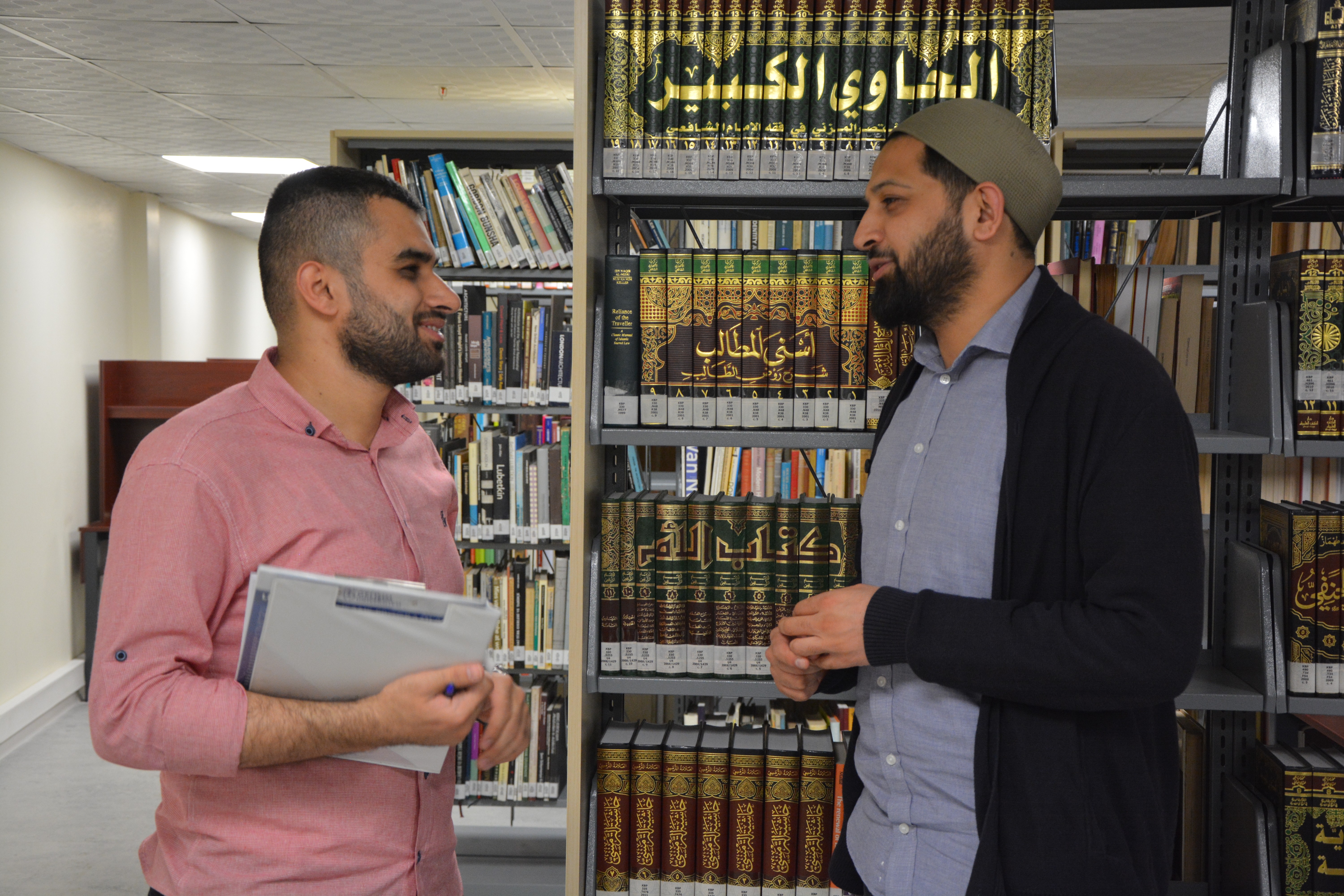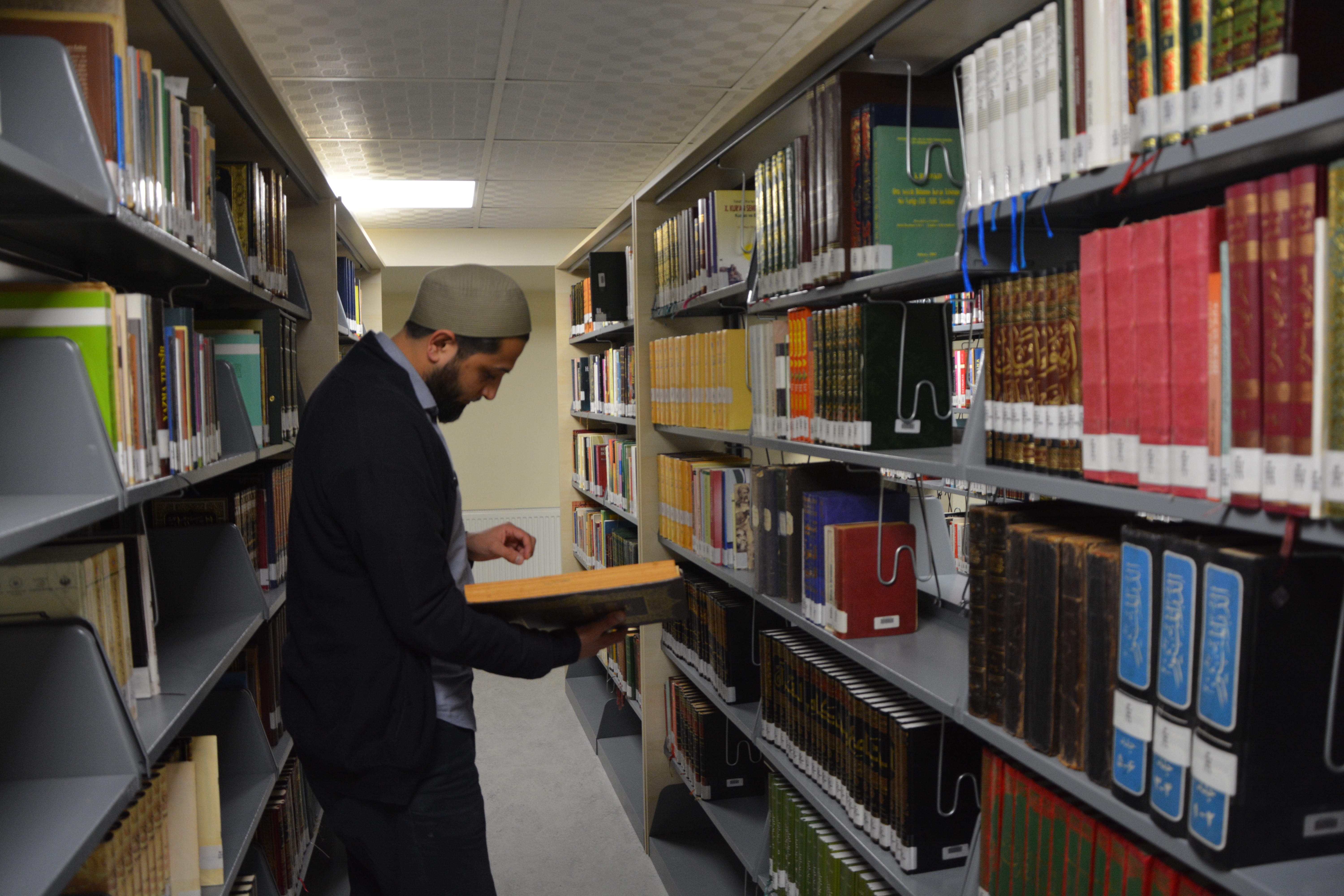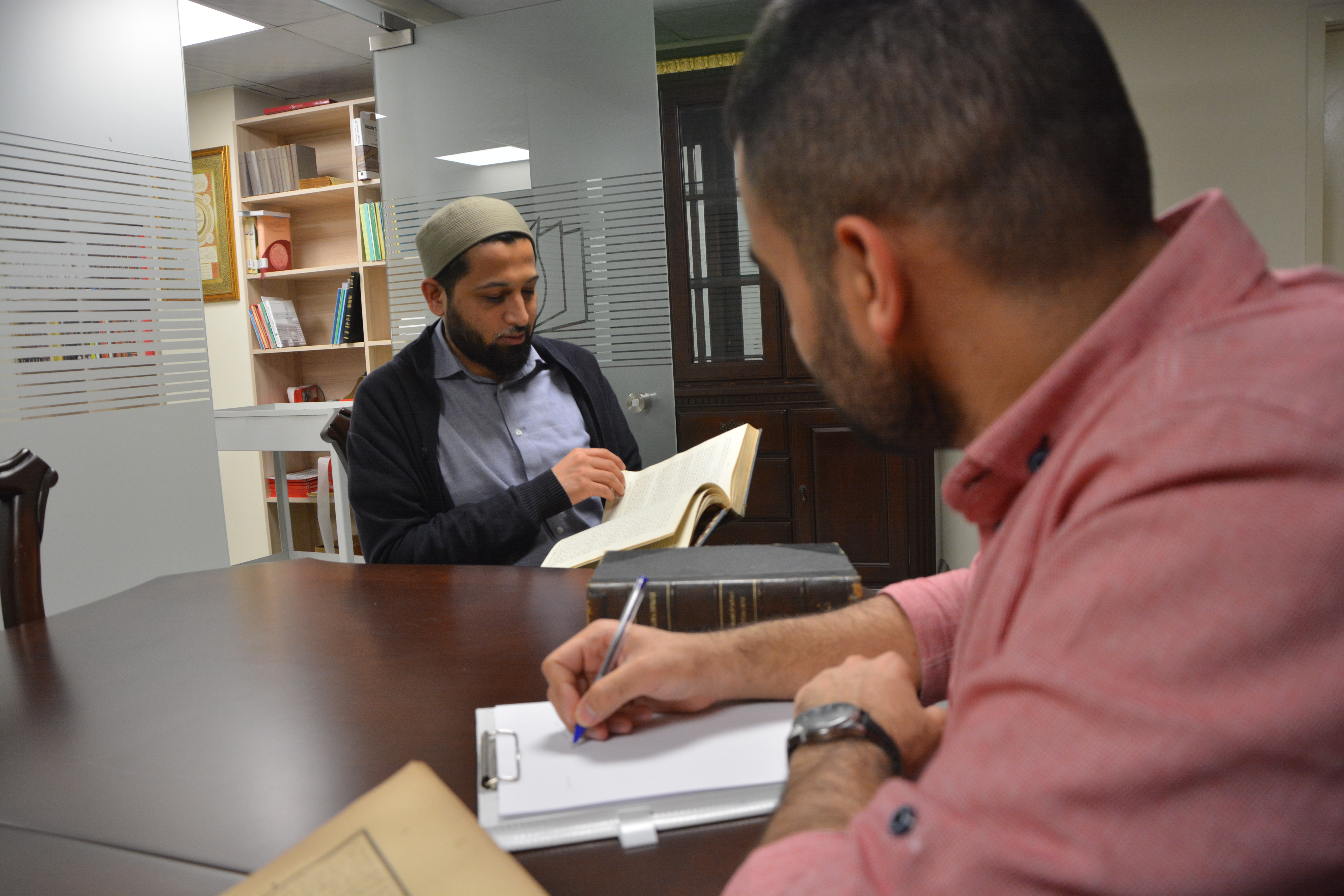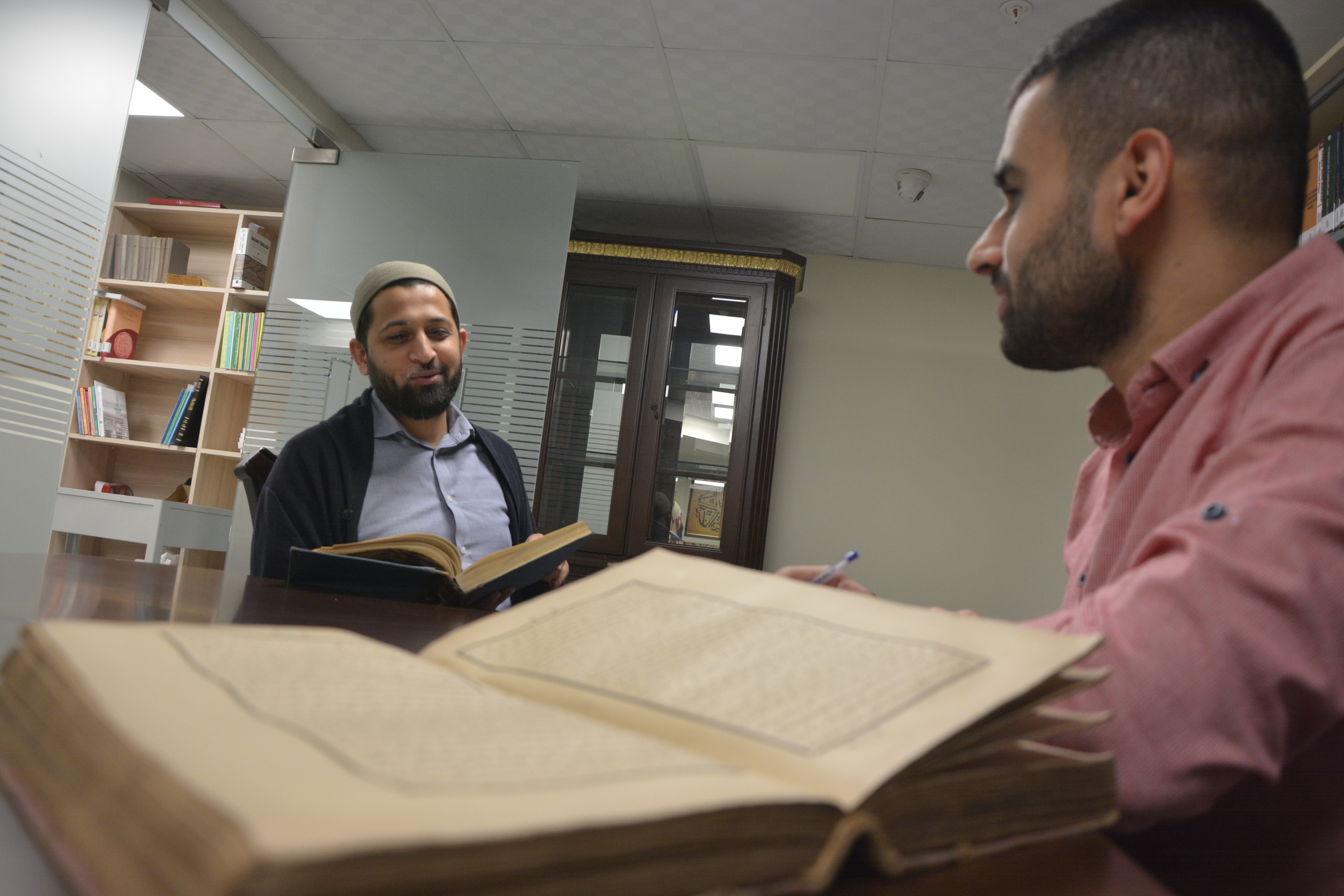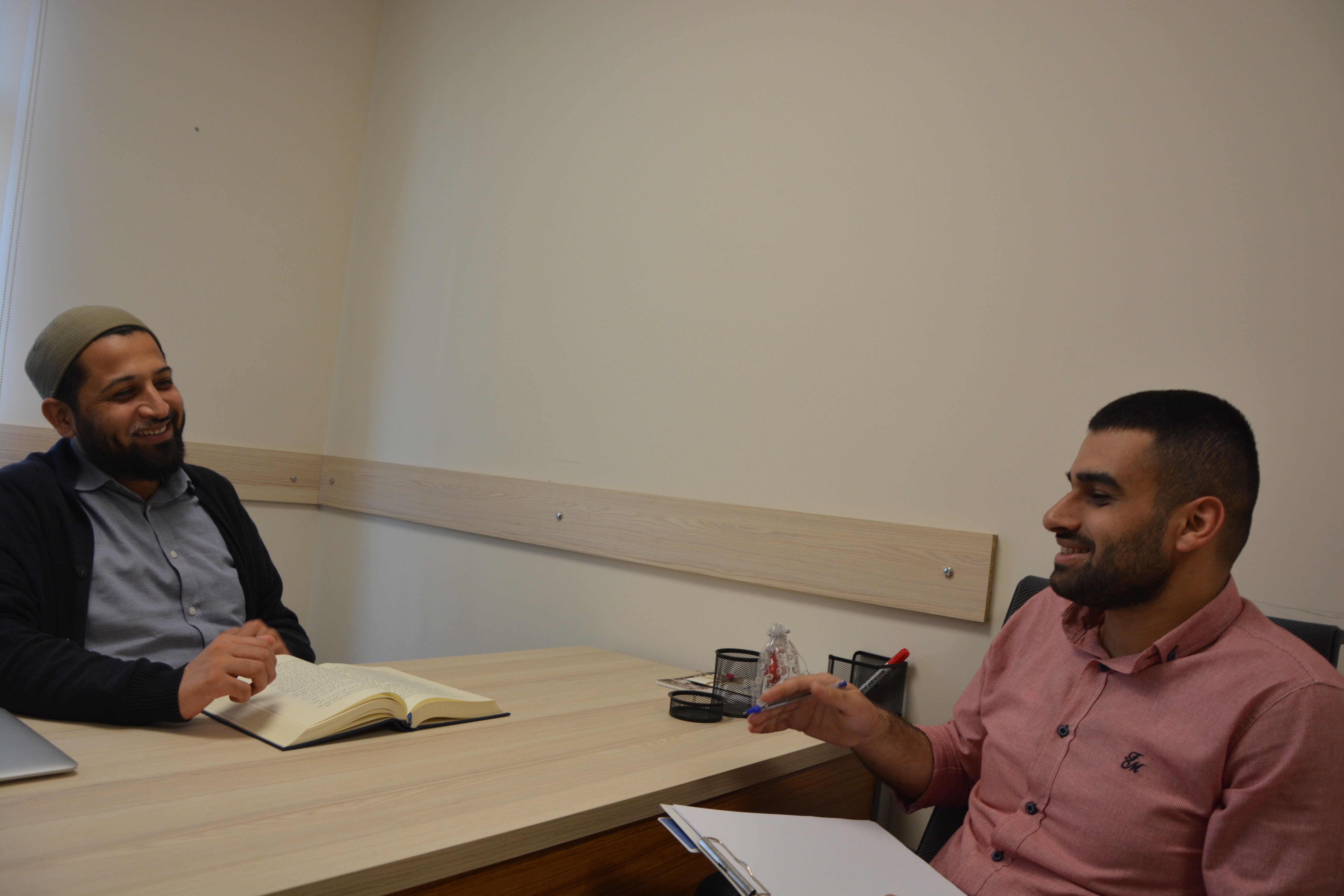Selman Aksünger
First of all, I am very pleased to have the opportunity to interview you. Thank you.
Yasser Qureshy
You are most welcome, I am honoured. I should also take this opportunity to thank Professor Recep Senturk and Professor Necmettin Kizilkaya, and all the wonderful staff at ISAR who have made my stay here all the more pleasant and welcoming.
Selman Aksünger
Tell us a little bit about your background. How did you come to be interested in Islamic studies?
Yasser Qureshy
Like most people of my generation in the mid- to late-nineties in the UK, our greatest debt is to Shaykh Hamza Yusuf and Shaykh Abdal Hakim Murad (Timothy J. Winter). They made us realise the intellectual depth we have allowed to slip through our fingers, and how much hard work is needed to begin the revival. But, importantly, it was not just an intellectual exercise they were calling to, it was a revival of our being: mind, spirit, and body. Learning without heart was almost akin to no learning at all. Up to that point, religion, although it was something deeply ingrained, its actuality was something we did not know what it actually meant in a practicable way.
So that was sort of the beginning of my interest in wanting to study the Islamic Sciences traditionally. However, it was clear that to really understand our tradition of learning and scholarship, the first step was to learn Arabic. Only then would it be possible to become familiar with the learning apparatus, and the framework of Muslim intellectual thought.
Selman Aksünger
So you do not have an Islamic education background in your primary and secondary school education. Did you start at undergraduate level?
Yasser Qureshy
In the 1990s in England there was not much available in terms of Islamic Studies Degree Programmes. Universities mainly focused on Arabic, and even then there were only a handful of universities offering Arabic as an undergraduate option. Besides, had there been options available, my interest at that time was to pursue a course of traditional Islamic studies. For that reason, my initial university study was in Philosophy. At the same time, I began studying with local scholars, and attending various Islamic courses and programmes. But, my biggest source of inspiration remained Shaykh Hamza. I recall traveling to university for my Philosophy lectures, and in my bag I would have my Philosophy textbook, and about five audio cassettes of various Shaykh Hamza lectures!
Not long after this period I traveled abroad to begin full-time study of the Islamic sciences.
Selman Aksünger
And then you choose to study Ash‘ari Kalam?
Yasser Qureshy
That came later. When I started formally studying the Islamic sciences, one of the subjects that I did not want to study in much detail was Islamic Theology. I think that was partly because of my background in Philosophy. I felt very uncomfortable trying to philosophise questions in Islamic Theology.
After my initial hesitation, I eventually started studying Kalam works from the early period, works by Imams such as Ash‘ari, Baqillani, Juwayni, Ghazali, together with comparative readings in Mu’tazili and Maturidi Kalam. I remember reading the incredible detail they advanced for each discussion. And the more and more I read, the more I began to realise that the Mutakallimun were attempting to put forward an incredibly detailed, and sophisticated world view, which was so confidently articulated. This realisation brought answers to some early questions.
Selman Aksünger
How important is it to understand the Kalam tradition holistically in attempting to deal with contemporary issues?
Yasser Qureshy
It is important to keep in mind that the Mutakallimun were systematic thinkers, and before we can begin to analyse and understand their arguments, we need to be aware of their systemic presuppositions and aims. Of course, this means that the growth of their texts and ideas needs to be understood before we can be in a position to draw conclusions about their systematised thought. From here we are more able to be in a position to articulate the coherency of their system of theological thought. Familiarity with classical Kalam texts will also make it easier to incorporate their working principles in to our own thinking.
One of the ways in which to conduct and further such reflection is also historical. By seeing and thinking about how questions that we recognise as philosophical, were treated in the past; what was their ideational context, what were the argumentative methods used, what were the constraints and influences, and the conclusions reached. With this in mind, the analysis of classical Kalam texts should be conducted with the same rigour that philosophers today look at medieval western Philosophy; we should not be content with artificial simplification.
Of course, it is important that we also understand the general character and purpose of Kalam. It deals with some of the most important existential questions a human can - and should - ask: ‘how did I get here?’, ‘Who created me?’, ‘Why did He create me?’ If we were to describe the general character of Kalam we could say it is an exceptionally fluid science, adapting to questions and reacting to ideas which may have theological implications.
Islamic Theology, if taught properly, gives expression to all our other sciences by allowing us to see our place in the cosmos, and to see our dependence on God. It allows us to see that historically, Muslims have always had their own categories of thought, commitments, principles, and understanding of the cosmos.
Of course, modernity, or post-modernity I should say, has thrown up numerous challenges. One of the key features of the post-modern world is how disconnected things have become, which has also spilled over in to how we learn, creating a sort of intellectual disorder. We cannot seem to fit the individual pieces of an intellectual jigsaw together. We may be able to see the disparate parts, but not how they fit together. This creates cognitive dissonance. And so, from within this intellectual cacophony, we find challenges from various sources, and because modern education does not always serve the purpose of actually educating people by furnishing students with the tools thought, we find it difficult to know how to respond in a thoughtful and intelligent manner.
Selman Aksünger
With the views of the old scholars in mind, do we need a new perspective of Ilm al-Kalam?
Yasser Qureshy
I am not keen on dichotomising fields of inquiry simply because we find ourselves in an age which has tried to do away with traditional forms of learning and knowledge. And more so a science such as Kalam, since it is built in to its essential purpose that it is fully adjustable to the needs and questions of the age.
For some odd reason we seem to forget that the Islamic sciences continued to develop, at a varied place, for almost a thousand years, addressing questions and problems particular to each age.
Now, if by using words such as ‘new’ ‘neo-’ ‘contemporary’ we mean an engagement with those challenging theological questions which are implied by Science and Philosophy, then the distinction is merely semantic, what I understand of Kalam, is the same as what this understanding of Kalam suggests. If, on the other hand, contemporary Kalam is supposed to stand for a set of new working principles and methods, I am yet to see such an apparatus, and to what it amounts.
As I just mentioned a few moments ago, Kalam, as a science, is a theological defence mechanism. For example, if you look at the early period of the Ash‘ari school, the main interlocutors in that debate were the Mu'tazila. Why? Because their arguments and lines of inquiry proved to be troubling. With Imam Ghazali, we see a shift in terms of the ideational adversary. The main questions he is responding to are inspired by Greek Philosophy in the shape of Ibn Sina. Today, we must again look at questions of Theological concern, whatever their source, and begin to articulate our response.
Selman Aksünger
So we can say that Muslim scholars had deep familiarity with Science in that particular period; and today we are observing more developed science. Do you think Muslim scholars are confronted with a lack of knowledge about science today?
Yasser Qureshy
Yes, there is a disconnect between scholars of Kalam and Science today. Ideally, a Mutakallim should also be trained in the field of inquiry he wishes to understand, and subsequently address. If we look at the great figures within the Kalam tradition, you will find them speaking about philosophical mathematics, modalities, philosophical physics, causality, and so on.
Today we find theological challenges from two main fields of inquiry: Science and Philosophy. By the challenge of Science I mean the potential theological implications of certain scientific theories, such as Evolution and Quantum Physics, to name two standout examples.
If you look at Imam Razi’s Kalam works, you will find he is very comfortable speaking about Physics as understood at that time, the idea of infinities, geometry, etc. I can imagine that if the great Imam were alive today he would have been an expert in the Philosophy of Science, ready to understand Science from the its conceptual roots up.
It is our responsibility to bridge this gap by supporting the training of Muslim theologians in these various fields of inquiry, such that they can begin to engage with contemporary issues of Science and contemporary issues of Philosophy.
Sometimes it is the case that we reject scientific theories, and philosophical ideas out of hand, but, it may be the case that there is much for us to accept, but we cannot know that until we begin to engage with such theories and questions.
Selman Aksünger
To understand modernity, it would seem critical for Muslims to engage in a structured program of study. What recommendation would you have in this regard?
Yasser Qureshy
We need to work on identity curricula that allow for us to understand who we are, and another which allows us to understand our place in the world today. As part of the former, we need to have identity forming texts, something which Imam al-Ghazali alludes to in his Ihya. The latter involves us looking at the context we inhabit. There is a saying in Arabic, ‘al-Mu’min ibnu zamānihi’ (a believer is contextually relevant to his age).
In the Catholic tradition, you find, for example, Thomists, who continue to study the thought of Thomas Aquinas, because they see Aquinas as presenting a coherent theological worldview. As Muslims, we need to begin the process of studying the works of our greatest theologians, Imam Razi, Taftazani, Ghazali, and others, and use their thought as a base for our own contextualised articulations of our Faith.
I think we need more programs that are trying to combine traditional approaches to Islamic studies, whilst at the same time furnishing students with the skills which will allow them to understand and navigate the questions we are facing in the West. But, I should emphasise that we need to invest more in traditional Islamic scholarship. Traditionally trained scholars, if trained properly, take time to patiently go through various inter-related texts; texts which may be in response to another text, texts which may have been written to serve a particular purpose, texts which may compliment other texts, texts which leave out important detail in the knowledge that competent scholars would be able to unpack often obtuse discussions. Such an approach allows for the student to build up a holistic, and conceptually refined understanding of the logic of the system in question. From here, it is understandable that hasty generalisations and conclusions are meritless
Selman Aksünger
You have been educated in different places such as Syria, the UK, and Turkey. Can you describe the resurgence of Islamic Studies in Turkey?
Yasser Qureshy
I am no expert on Islamic Studies in Turkey, but what seems to be the case is that there are two platforms for Islamic Studies in Turkey. The first is the traditional Madrasa setting, of which there are many spread throughout Turkey, and which are now also benefitting from the growing number of Syrian scholars who - due to the Syrian crisis - have relocated to Turkey. The second is within the University, where you can find very well established Islamic Studies departments.
Until recently, there seemed to be a disconnect between the two platforms, but you are now slowly seeing more and more academics who are also traditionally trained scholars, or, who have spent some time studying with traditional Scholars. For me, this can only be a good thing.
The history of the Ottoman empire is in large part a history of supporting Islamic scholarship. Even though we saw Islamic scholarship stagnating in Turkey in the past century to due to various political reasons, the actual educational infrastructure remains very strong. The current revival has allowed scholars to express themselves more confidently, and has also allowed them to access various platforms.
Selman Aksünger
What we see as another major challenge is global ummah connection. With regard to newly established connections between CMC and ISAR, how do you see the cooperation between them? What are your expectations and hopes from these foundations?
Yasser Qureshy
The modern world has made collaborative scholarship much easier, and so it is important for such institutions as the Cambridge Muslim College, ISAR, Zaytuna College, and other similar institutes who are working toward reviving Islamic scholarship, and strengthening the Islamic intellectual tradition, to continue to build ties.
ISAR is already home to some of the most promising undergraduate students in Turkey who will go on to prominent positions within politics, industry, and society. It is encouraging that ISAR is providing these students with an invaluable opportunity to study with senior Scholars in various Islamic sciences.
With the very recent launch of the Cambridge Muslim College B.A programme in Contextual Islamic Studies, it is hoped that the College will attract the very best students, and provide them with the necessary tools to begin their journey in to Islamic scholarship such that they can make positive, lasting, and important contributions beyond local communities.
Of course, Zaytuna College recently became an accredited university, which is very encouraging, and exciting, for Muslims in North America.
However, as things stand, such institutes are the exception rather than the norm. For me, it is no coincidence that those in the vanguard of building such promising institutes are the very same people who were in the vanguard of bringing Islam to the lives of so many young Muslims in the West.
With this in mind, institutional collaboration is an important cog in the process of reviving the Islamic intellectual tradition. There needs to be more collaboration between all these institutions; the more united we are, the stronger we are, and the stronger we are the more we can produce and we need many more excellent minds to work on these sort of projects.
Selman Aksünger
Thank you very much. We really do appreciate you taking the time to speak with us.
Yasser Qureshy
The pleasure is all mine, and thank you.
